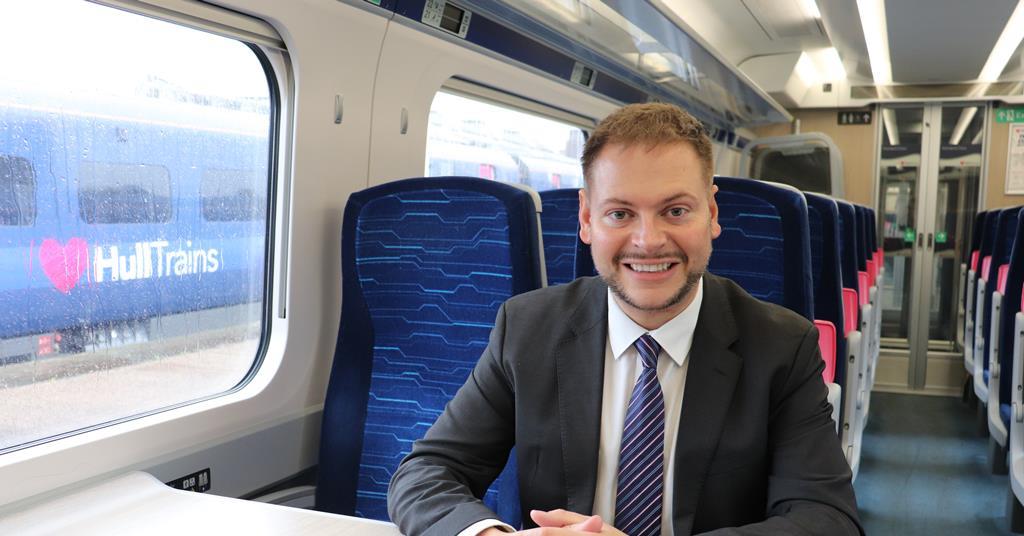UK: Open access can and does pay its way, insists Martijn Gilbert, Managing Director of FirstGroup’s open access businesses Lumo and Hull Trains.
Speaking to Rail Business UK in mid-May shortly before FirstGroup announced that it was seeking to launch a Lumo service between Rochdale and London Euston, Gilbert issued a robust defence of the open access model. Hull Trains and Lumo are, he feels, a reflection of the ‘entrepreneurship, consumer choice and competition’ that open access has brought to UK rail. He points out that before Hull Trains was founded in the late 1990s, the East Yorkshire city had one daily train to London, Today there are eight return services, of which one is still run by incumbent operator LNER.
Cost criticism ‘unbalanced’
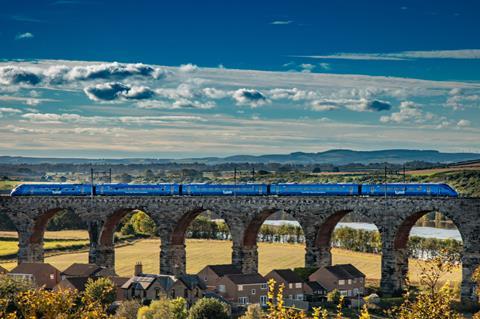
Welcoming the opportunity to address some of the negative press open access has attracted in recent years, Gilbert suggests perceptions of these operations can sometimes be unbalanced.
‘We hear a lot that we are running short trains to take up capacity on busy routes that could better be used elsewhere’, he says. ‘Yet around half of Hull Trains customers are now carried on 10-car formations, while the Lumo Class 803 sets are a higher density layout than the similar trains in use elsewhere. They’ve got 400 seats — closer in number to a six-car set using the interior designs of the other operators.’ He would be keen to introduce widespread operation of 10-car trainsets on Lumo’s London – Edinburgh route as well, but currently this is being hindered by the ongoing work to strengthen the overhead power supply on the East Coast Main Line. ‘We hope we can work with Network Rail to achieve this.’
Gilbert is also keen to dismiss criticism about his operators’ share of infrastructure and other industry costs, which he describes as ‘utter nonsense’. He emphasises that ‘all open access operators pay track access charges, and they all pay station facility charges as well.’ This covers the services provided by other companies’ staff and information provision requirements at stations where open access trains call.
Nevertheless, as part of efforts to manage the cost of the railway, the Office of Rail & Road has since the start of CP6 introduced a tiered levy on open access players known as the Infrastructure Cost Charge. Lumo will be the first operator to be subjected to the ICC regime, which is being phased in over five years under what Gilbert describes as a ‘complex’ set of criteria.
Reflecting on its introduction, Gilbert is adamant that ‘nobody in the sector can truly afford to cover the whole cost of the railway’ which is why Network Rail receives 5-year control period settlements, and he believes open access operators ‘have always paid a fair share of the cost of the infrastructure. It isn’t the case that adding a further train to a 10 train per hour section of main line increases the costs of the infrastructure by 10%.’
Nevertheless, the ICC impact is firmly factored into Lumo’s business plan, and he adds that at the end of the five-year phased introduction, ‘we’ll be paying more per passenger in access charges than LNER’.
ECML timetable
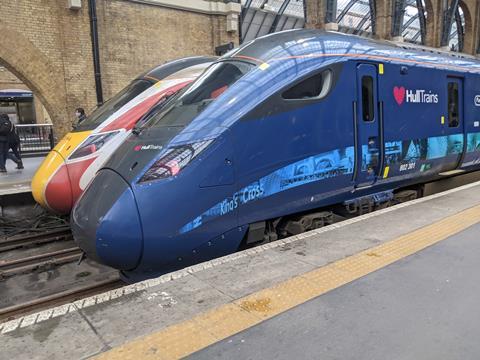
Looking ahead, both Lumo and Hull Trains are impacted by the ongoing debate over the East Coast Main Line timetable. Hopes that a revised service pattern exploiting the various infrastructure enhancements carried out in recent years could be implemented from December have been dashed, marking the latest stage in an at times fractious debate over capacity and access to the corridor.
‘The East Coast Main Line needs a reliable timetable’, Gilbert insists, stressing that he can only address the topic from the perspective of Lumo and Hull Trains. ‘It is for Network Rail to discuss the issues in detail, but there looks to be scope for a sixth Lumo path between London and Newcastle for example. We would be keen to exploit that.’
He believes that the current impasse is in part being caused by fears in the industry over a repeat of the 2018 timetable crisis that affected operators across southeast and northern England. ‘The proposed timetable would bring substantially more trains to the line. We believe the capacity is there — we are just keen that it is being used rightly and run reliably. We know for certain that the demand is there for our low-cost model.’
The timetabling debate has not deterred FirstGroup from lodging an application for a London King’s Cross – Retford – Worksop – Sheffield service. This would be introduced as an expansion of the Hull Trains business, and Gilbert is optimistic about the case for the route. ‘There is a lot going on in the Worksop and Woodhouse areas in terms of redevelopment, and our proposal would halve the time of many journeys between Worksop and London’, he says. An initial two return trains per day are planned, focused on leisure journeys at first. Initial consultation with ORR and other stakeholders is now underway, and FirstGroup has suggested services could begin in the second half of 2025.
Making open access ‘more human’
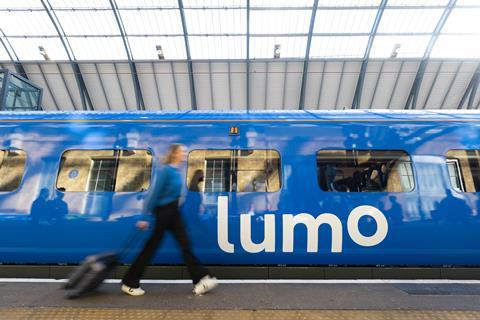
Back in the here and now, Gilbert says a key focus of his has been to make open access seem ‘more human’ in its day-to-day operations, reflecting what he sees as an increasing level of maturity about its place within the wider rail sector.
A major challenge on the East Coast route concerns management of disruption, and at times there had been tensions between open access and DfT-contracted operators over how to manage cancellations and provide passengers with appropriate customer care. Gilbert believes this issue is now much improved — he cites the introduction at King’s Cross of a dedicated team of customer service staff tasked with helping passengers from Lumo, Hull Trains and Grand Central. At Newcastle, staff from Lumo’s nearby office are also expected to help out on the front line in the station when disruption occurs.
Meanwhile, Gilbert and other senior managers used a recent National Customer Service Week to distribute thank you notes and gifts to station teams from Northern, LNER and TransPennine Express to express gratitude for their work in looking after Lumo and Hull Trains customers.
Corporate backing
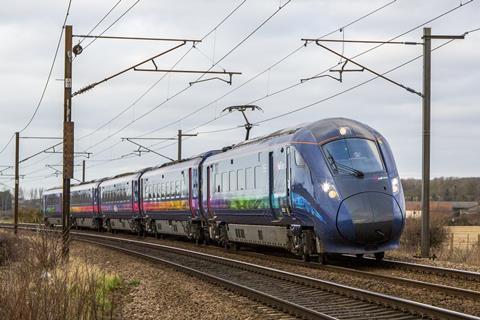
With a general election imminent, much attention is focused on how far the next government will support open access, especially in the light of a marked improvement in attitude towards it from the current government. Labour’s pre-election rail policy document promises to support the concept ‘where it adds value’ to the network, but the looming prospect of the last remaining privately managed National Rail Contract operators being taken in-house under Great British Railways has focused minds.
The flurry of open access bids now being assessed by NR and ORR is perhaps no coincidence — although Gilbert points out that the first open access rights in UK rail were granted to Hull Trains while Labour was in power in the late 1990s.
Asked about FirstGroup’s backing for rail, Gilbert notes that Hull Trains and Lumo are ‘a significant contributor’ to the company’s overall rail activity. FirstGroup has backed the launch and possible expansion of Lumo ‘to the tune of several millions of pounds’, and the group’s ‘federated structure’ has allowed his teams to retain a high degree of independence.
Gilbert also points out that his business unit ‘has shown a level of cost control’ that he does not see matched across the sector — Lumo staff in particular have multiskilled roles that are perceived as being more flexible than those in the formerly franchised operators. ‘Our cost control has not come from paying staff any less, to be clear’, he adds. The operators are also investing in staff training, he reports — Hull Trains has just launched its own driver training academy, while around half of Lumo’s drivers qualified through internal training.
Summing up, Gilbert is adamant that open access operators ‘unlock huge amounts of regional growth without placing that burden on the taxpayer’, citing the role of the operator’s services in supporting the expansion of Hull University and the City of Culture celebrations in 2017. Noting that Lumo and Hull Trains are members of AllRail, the association of new entrant operators based in Brussels, Gilbert is adamant that ‘open access works in increasing parts of Europe, and it works here. Open access should be a beacon of what the private sector can bring to the railway, and in future we should be looking to harness the best of that.’

